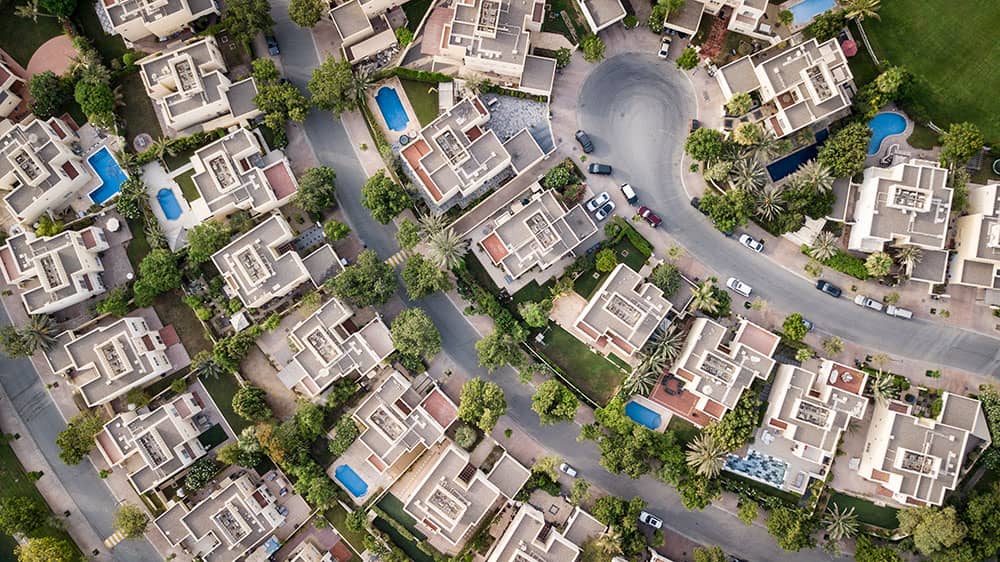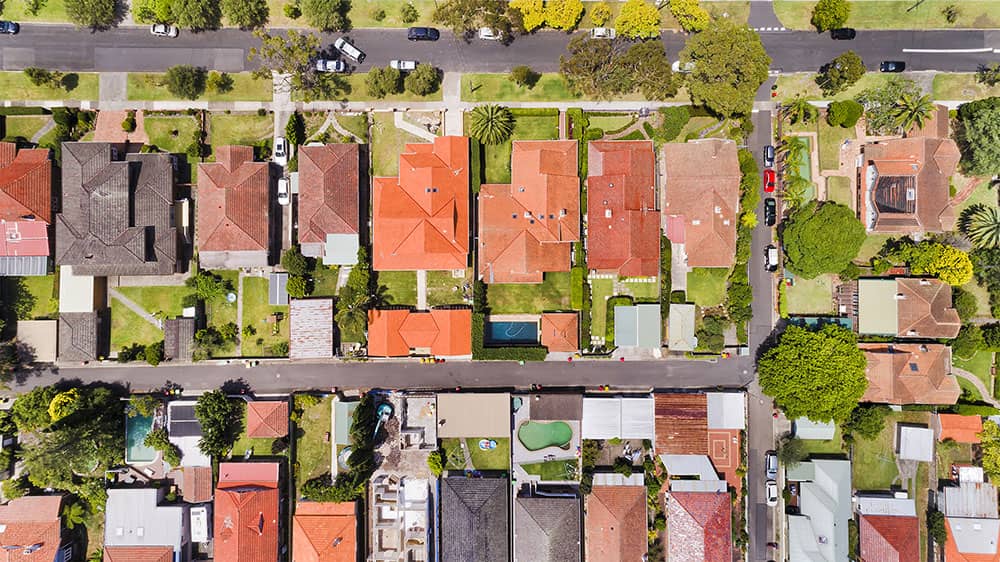[Updated April 28, 2023]
To many people, houses and units are among the investments that are easiest to understand. It is why over two million Australians have at least one more property where they earn extra income by renting it out. Others choose to invest in platforms, such as Airbnb where there are more than 137,000 active listings. If you are in these figures, it pays to know how you will get taxed.
How do you declare your rental income when it is tax time? What about when you buy or sell a house? We’ll answer these important questions and more in this blog post.
Tax Return and Investments
Investing for Tax Deductions
Property investments are usually less risky and offer plenty of benefits for the investor. There is less volatility, compared to other investments, such as shares. Rental income is steady if there is a tenant. Properties can possibly increase in value, which provides a capital gain benefit if you sell it.
Let us not forget that you can enjoy tax deductions when you invest in properties. You can save a lot of expenses against the income you earn if you rent out the house or unit. These expenses include the interest on the loan you may have obtained to purchase the property.
Perhaps many Australians realise this benefit because about one-third of home loans in the country are dedicated to investment purposes.
But the question is, will you be taxed? If so, how does it work? The quick answer is yes, you will most definitely be taxed. Your rental income is just like any other regular income. The Australian Taxation Office will come after you and require you to do your obligation as a citizen. Therefore, you need to be prepared with the fact that you will part with some of your rental earnings.
Here is the good news, though. As a savvy investor, you can save yourself from all the headache by knowing what is and isn’t taxable. Investment properties have quite a diverse set of rules, which is why you should be armed with such information during tax time.
The ATO counts the rental money you receive, whether it is part or all of your property, as assessable taxable income. In short, it is taxed within your marginal tax rate. Therefore, it should be declared when it is time to arrange your tax return.
How is Rental Income Taxed In Australia?
Note that the tax rates apply. If your income is $18,200 or less, you will not be taxed. However, if it exceeds a dollar up to $37,000, you will have to pay 19 cents for each dollar. The rates go up for higher incomes.
Let us say that before tax, your income is $80,000 yearly. Your rental income adds $20,000, so you have a total of $100,000 (again, this is before taxes). Assuming that no changes take place, you will pay about $24,497 in tax for this specific year. It is because you belong to the $90,001 to $180,000 group, which is taxed $20,797 plus 37 cents for every dollar over $90,000.
Note that other investment returns you may have should be written under your taxable income as well. They include realised gains and dividends that come from shares and interest that you earned from your term deposit or savings account.
Looking at the above example, it does appear that the explanation is quite simple. However, there is a lot more to factor in when it comes to rental income tax. It does not just entail how much income you receive for a particular financial year. You should also consider deductions.

What You Need to Know About Deductions
If you diligently lodge your tax return, you know about deductions, which allow you to save tax on your expenses. According to the ATO, taxpayers are entitled to claim their investment expenses and get tax deductions. However, there are specific rules to follow. The most significant of all is that the costs should be used on parts of the house, which is the investment property.
Some types of claimable expenses include:
- Maintenance costs
- Management costs
- Borrowing expenses
- Depreciation
On the other hand, you cannot claim deductions on expenses that you did not pay from your own pocket. For example, your tenants paid for the utility bills, repairs, or home improvements.
You can, however, claim a deduction for the following management and maintenance expenses:
- Payments made for ads to find new tenants
- Charges or fees on banking and loans
- Cleaning costs, council rates, and other related fees
- Electricity and gas (that you paid yourself)
- Legal expenses
- Land tax
- Insurance for the house and its contents
- Property management fees (plus commissions, if applicable)
- Travel and car expenses when collecting rent or for other tasks, such as inspections
You can also claim for any cost incurred for repairs.
For borrowing expenses, the claimable taxes include interest that you currently have on your investment home loan. However, be aware that the principal amount is not considered when calculating your deduction. The other borrowing fees covered are those for:
- Title search
- Loan establishment
- Lenders mortgage insurance
- Stamp duty (only if it is charged on the mortgage)
- Mortgage broker payments
Depreciation losses can be claimed as well. They are applicable for newly purchased items whose value declines over time. Some examples include blinds and carpets, water systems, and appliances.
You can see that there are a lot of deductions that you can claim, which means that you can save a lot of money when you have an investment property. Make sure you never forget about them when you lodge your tax return.
Are You an Airbnb Host?
The income you earn when you rent out a property for Airbnb is also deemed assessable. After all, it is a property that you have advertised to the public. The ATO can counter your claim for a deduction, mainly because you are not charging a commercial rent. This case often occurs when you are making a loss on the venture.
However, always be firm that you are entitled to claim the deduction. All expenses incurred relating to your rental income as part of the Airbnb is deductible. You can say that the situation is the same as having a rental property like what has been discussed above.
Typically, if the entire property is rented out, you can claim all the costs involved in that property. Meanwhile, if you only rent out a part of the house, a level of apportionment is required. Expenses fall into three different categories:
-
- The expenses are directly associated with the property you own. They can be deducted in full.
- The costs are related to shared areas, such as homes whose portions are rented out (as opposed to the entire house). The deductions will be apportioned.
- If the costs are relevant to your private residential area, they will not be deducted.
Just like with traditional rental space, deductible expenses for your Airbnb property include:
-
-
- Depreciation of furniture pieces, which are present in the rented room
- Repairs and maintenance
- Cleaning services
- Food, including breakfast provisions for the guests
- Professional photography for your Airbnb listing
-
If you share the house with the Airbnb renters, you will need to separate your personal expenses from the rented area. Often, you will need to base the share on the floor area used for Airbnb renting and exclude the rest of the property.

What About Land and Property Taxes?
Property taxes or council rates are what funds local government initiatives, including rubbish collection and street cleaning. The tax depends on your location, as well as the value of your property. Land taxes, on the other hand, are payable for everyone, except those in Northern Territory. It is based on the combined value of the land you have and its calculated worth if you did not occupy it. This type of tax is also deductible as part of your investment property.
What About Capital Gains?
Selling a capital asset, which includes properties, earns you a capital gain or a capital loss. A capital gain takes place when you sell the property more than what you paid for when you bought it. A capital loss is the opposite.
Capital gains tax is the tax you have incurred because you profited from the investment. The capital gain will, therefore, be added to your assessable income, which works just like your rental income. It can create a dramatic increase in your taxable income.
According to the ATO, you are allowed to claim deductible payments and rental income up to five years since they have been dispensed. However, you are not allowed to claim an expense if you do not have proof, such as through a receipt or a bank statement. Therefore, it makes sense to keep those records, whether they are in digital or physical form.
Do you need extra information? Calculate your income tax with our online calculator or contact us if you need help lodging your tax return.
*General Advice Warning – “Any financial advice provided by TaxReturn.com.au is general in nature and is not personal financial advice. It does not take into account your objectives, financial situation, or needs. Before acting on any information, you should consider the appropriateness of it regarding your own objectives, financial situation and needs.”


